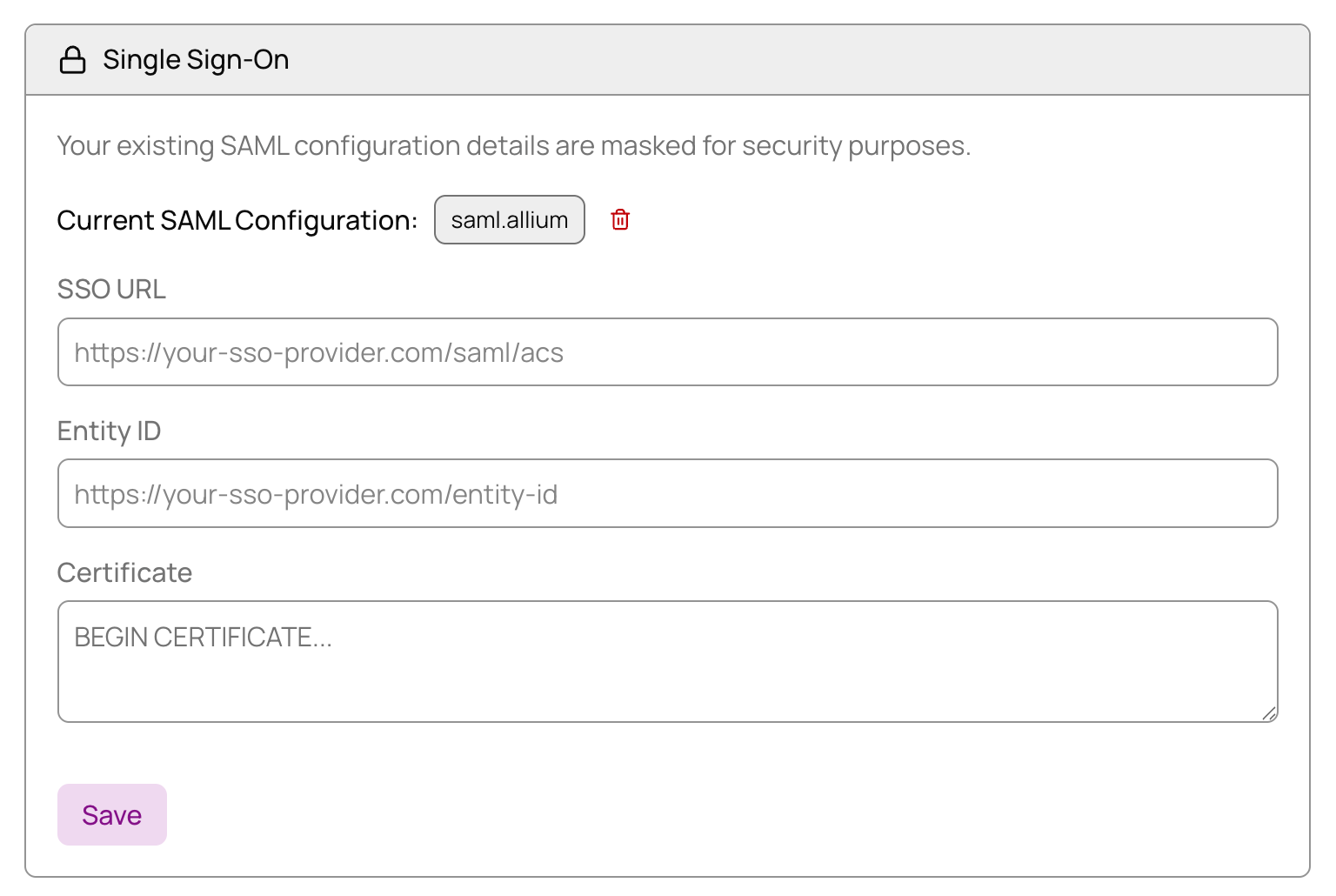Setup Process
Create a SAML Application in Your IdP
In your IdP’s admin dashboard, create a new SAML 2.0 application/integration.
Configure SAML Details
When prompted for SAML configuration details, enter the following values:
| Field | Value |
|---|---|
| Single sign-on URL (ACS URL) | https://allium-firebase.firebaseapp.com/__/auth/handler |
| Entity ID (Audience URI) | https://app.allium.so |
Locate Your SAML Metadata
After the application is created, your IdP will provide the following values (often available under SAML Setup Instructions, Metadata, or Configuration):
| Field | Description |
|---|---|
| Identity Provider Single Sign-On URL | Also called Login URL or SAML Endpoint |
| Identity Provider Issuer | Sometimes called Entity ID |
| X.509 Certificate | Public certificate for SAML signing |
Navigate to Allium SSO Settings
In Allium, go to Team Settings → SSO Setup.

Enter SAML Configuration
Paste each of the three values from your IdP into the matching fields in Allium.
Success! Once configured, your organization members can sign in to Allium using your IdP credentials.